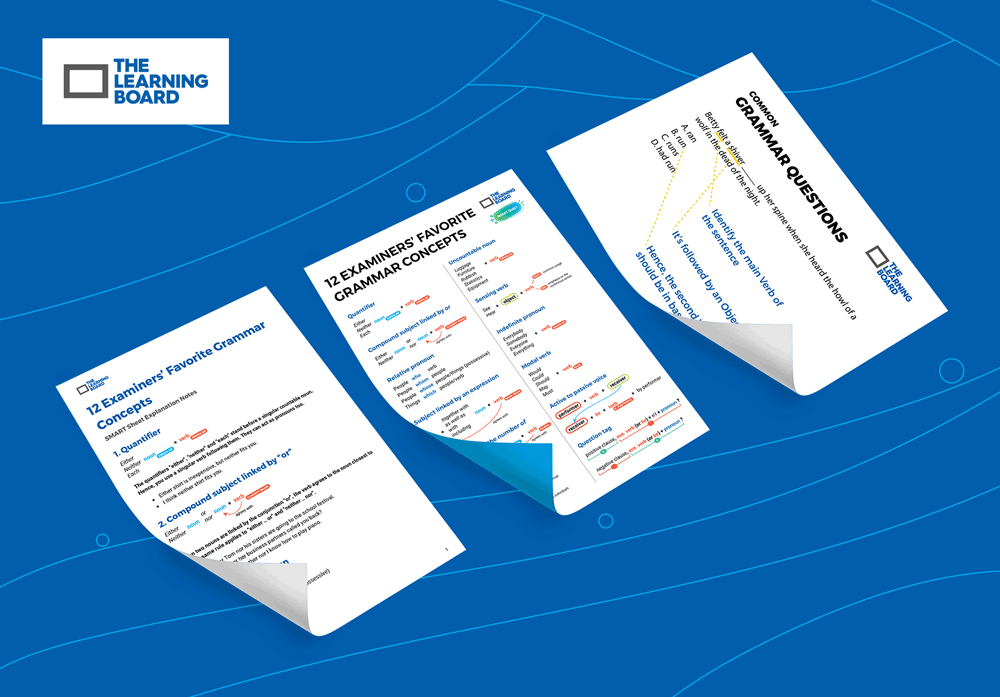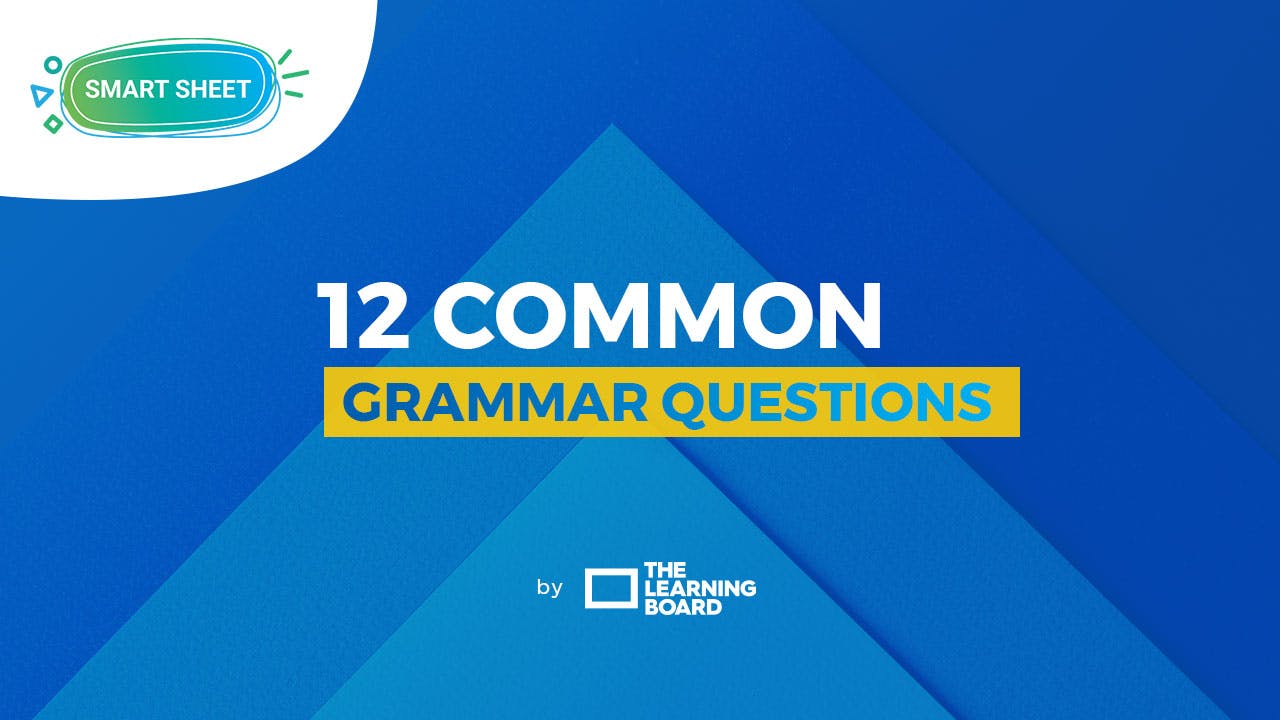This SMART Sheet helps you quickly review the grammar concepts you are most likely to encounter. You will gain a deeper understanding of the English language's grammatical rules. Even though its content is focused on the grammar MCQs component of the PSLE English exam paper, it benefits other components as well.
Why you should fix your English grammar right now
Grammar constitutes approximately 55% of the PSLE English exam papers. Mastering grammar rules is a straightforward way to boost your exam scores and enhance both your writing and comprehension.
After looking through the answers of some grammar MCQs, if you still have any doubts, go back and review the content to fix any shaky parts.
Add this SMART Sheet to your study

This SMART Sheet by The Learning Board Tuition Centre helps you learn the 12 common grammar rules with ease. These rules will help answer questions that often appear in the PSLE English papers.
Fill in the form below and download a copy of the SMART Sheet. You also get access to the Explanation Notes and the Common Grammar Questions + Answers, everything you need to start your grammar MCQs revision.
What includes in this pack:
- 12 Examiners' Favorite Grammar Concepts SMART Sheet that helps your child understand, remember & review important concepts quickly
- Precise explanations & carefully chosen examples
- Frequently encountered exam questions & the thought process for answering them
Download Now
If you encounter any problems or are unsure about anything, feel free to ask for assistance. We are always happy to help!


